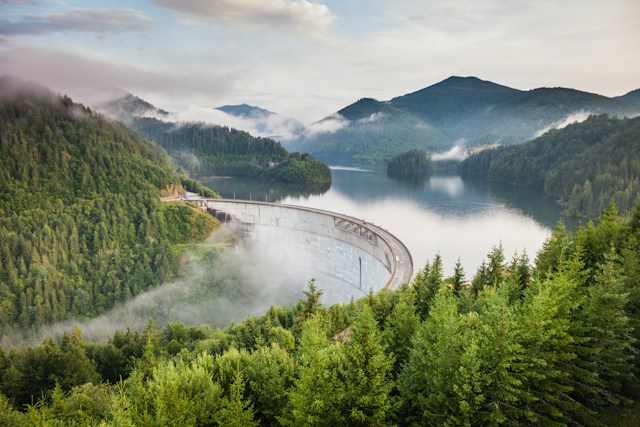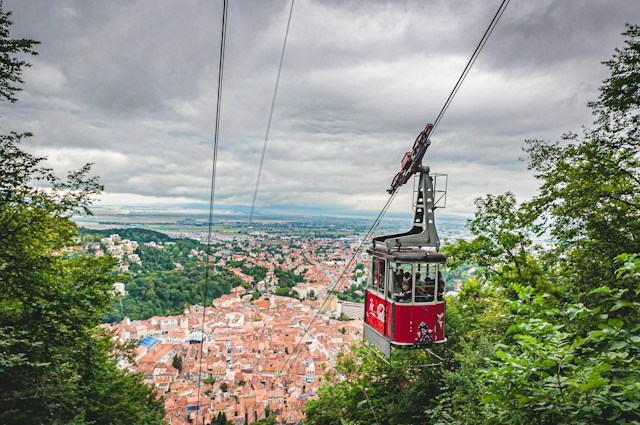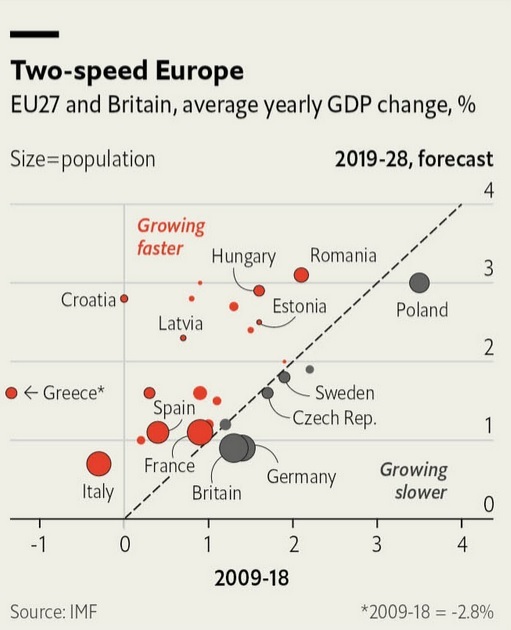
Romania Is Predicted to Lead EU Economic Growth
Romania is forecasted to have the fastest economic growth rate in the European Union, extending until 2028, with an average economic growth exceeding 3%, as per The Economist's analysis. During the period from 2009 to 2018, Poland held the title for the country with the fastest average growth, surpassing 3%. However, it is now expected to experience a slower growth trajectory.
Read more about this in the article from Profit.ro: https://www.profit.ro/stiri/economie/infografic-the-economist-romania-va-avea-cel-mai-rapid-ritm-de-crestere-a-economiei-in-uniunea-europeana-chiar-pana-in-2028-21471415
The government projects a budget deficit of 86.6 billion lei for this year, representing 5% of GDP, compared to the 5.9% of GDP indicated for 2023, a level higher than the target previously agreed with the European Commission at 5.5% of GDP. The economic growth is forecasted at 3.4%. This month, the World Bank revised downward its estimates for the Romanian economic advancement from 2023 to 2025.
In tandem with Romania's projected robust economic growth, the tourism sector is poised for expansion, presenting a dual opportunity for both economic and real estate development. As the country becomes an increasingly attractive destination for visitors, there will likely be an uptick in demand for hospitality-related real estate, including hotels, resorts, and accommodation facilities. The anticipated growth in tourism not only contributes to the nation's overall economic prosperity but also provides a stimulus for investments in the real estate sector, particularly in areas frequented by tourists. Investors and developers keen on capitalizing on Romania's multifaceted growth should consider the potential synergies between the expanding tourism industry and the corresponding real estate opportunities that accompany it.

Globally, the World Bank has cautioned that the world economy is anticipated to slow down in 2024 for the third consecutive year. This would make the global economic growth recorded from 2020 to 2024 weaker than the growth observed in the years surrounding the global financial crisis of 2008-2009, the late '90s Asian financial crisis, and the early 2000s slowdown. Excluding the economic contraction caused by the pandemic in 2020, this year's growth is projected to be the weakest since the 2009 financial crisis, emphasizes the World Bank.
The positive economic outlook for Romania, predicted to lead EU growth until 2028, not only signifies a thriving national economy but also has significant implications for the industrial and retail real estate sector. This economic upswing is likely to drive demand for industrial and retail spaces, as increased economic activity typically translates into expanding businesses and heightened consumer spending. Investors and developers in the real estate market should strategically align with this economic trajectory, anticipating opportunities to meet the growing needs of industries and retailers. Romania's ascent as an economic powerhouse within the EU creates a promising landscape for the development of industrial and retail real estate, offering potential gains for stakeholders attuned to the evolving dynamics.
Considering this project of the country to exhibit robust economic growth, investors should turn their attention to the burgeoning retail and industrial real estate sectors. The anticipated expansion in these domains, fueled by a growing economy, presents a compelling opportunity for investors seeking diverse portfolios. The retail sector is witnessing increased activity, driven by the expansion plans of major retailers, while the industrial real estate market is poised for significant development, especially with the influx of foreign investments and the country's strategic geographical location.

As Romania positions itself as a hotspot for retail and industrial growth, savvy investors stand to benefit from the untapped potential and promising returns within these sectors, making it an opportune time to consider Romania as a prime investment destination.

